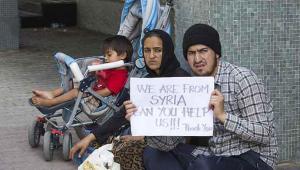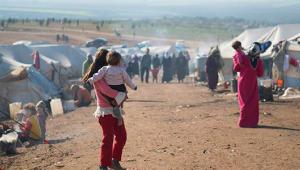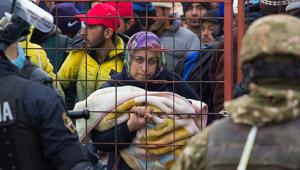In a report released on Tuesday, the UN refugee agency found that although much good had been done thanks to the generosity of donors, 70% of refugees are living below the poverty line in their host countries, up from 50% last year.
The findings came in a mid-year review of the Regional Refugee and Resilience Plan (3RP), a coordinated effort by the UNHCR and 200 agencies, inter-governmental organisations and NGOs, to respond to the refugee crisis.
It found that only 30% ($1.38bn) of the $4.55bn sought under the programme had been funded as of 31 May.
The report focused on the experience of refugees and host communities in Turkey, Jordan, Iraq, Lebanon and Egypt. Although there were some reasons for optimism, poverty and debt were growing.
In Jordan, 90 per cent of registered Syrian refugees in urban areas are below the national poverty line, while more than 67% of families are living in debt. In Egypt, the report found that 62,000 refugees were living in poverty.
As the civil war continues into its sixth year, the report recognised that host governments are continuing to “bear a heavy political, economic, social and security burden.”
It also observed that “public institutions are under extreme pressure to deliver basic services to an increasingly large number of vulnerable people, testing the limits of existing infrastructure.”
By investing in national services and systems the 3RP aims to relieve the pressure felt by host governments and communities.
So far in 2016, 3RP donors have delivered cash assistance to over 100,000 households, food to more than two million individuals, more than one million primary health care consultations, shelter assistance to around 25,000 households, as well as other forms of emergency assistance to refugees and host populations.
Some positive developments had been seen, such as the Jordanian government’s issuing of work permits to Syrians, and a new regulation in Turkey that allows Syrians to access employment.
However, the report urged the international community to match these positive initiatives, and to follow through with the promises made at the London Conference on Syria in February this year.
More funding, it said, would enable the programme to “mitigate further impoverishment of these refugees and host communities and to address the protection risks associated with increasing poverty, including negative coping mechanisms, and the essential needs of the vulnerable.”













